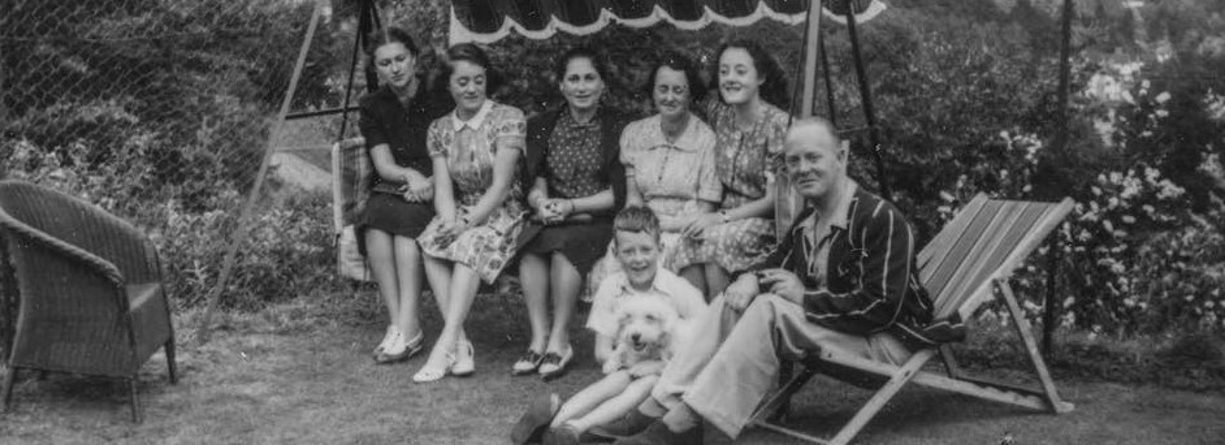As a counsellor one of the things I witness is the hurt that people have suffered when they have difficult relationships in their past. The days celebrating fathers or mothers can be very hard for them. Even where there has been a close, loving, relationship with a parent, the day can be hard when that parent has died.
Father’s Day is presented by the shops, social media and adverts in a sugar-coated way. It’s as though everyone has the perfect father and the perfect relationship. However, many people feel ambivalent towards the day. Their father may have died, their father may have left when they were children, or their father may have been abusive. This aspect of the day is rarely acknowledged or talked about.
As I approach the first Father’s Day since my own father died, I want to talk about an aspect of grief. Everyone grieves in their own way and there is no “right” way to do it. Personal history affects people in different ways. However, my experience of counselling people has taught me that I’m very rarely alone in my emotions and I share this in the hope it will speak to those of us who feel less than perfect.
One of the facets of losing a parent – particularly when it is the second parent who dies – is a feeling of losing access to childhood. As parents’ personal possessions are disposed of, or redistributed among the family, there is the sense that this is the end. It may be the sale of the childhood home or simply the awareness that the figures in the black and white photographs are no longer here.
As with any ending there can be the question of “what if?” What if things had been different? Grief can often bring regrets. It is a recognized part of the process. It’s as though our brains need to consider various possibilities and scenarios before reaching the conclusion that what happened, happened, and there is nothing that can be changed.
It is in this rumination that our brains can become stuck. They can keep going over the same painful regrets again and again. Particularly for perfectionists and those who feel “not good enough” this can be a destructive part of grief. It can also be very painful as the clock cannot be wound back. There are no words that can be spoken now. No comfort given, or taken.
So the endless loop can become one of bitter self-recrimination. The times when something was said. The times when nothing was said. The missed opportunities. On and on our thoughts go, remembering more and more instances of the times we failed to live up to the person we’d like to believe we can be. We wish we’d been different and it is distressing to realize it is a mistake that cannot be rectified.
My personal experience is of being a daughter who wanted to forge her own way in the world and, like many young people, of rejecting childhood and parental upbringing. Of course, as time progressed and my own family formed, I learned both that I was influenced in ways I could not imagine and that my parents loved me more than I’d realised. It is part of emotional healing, I believe, to come to terms with one’s childhood and to take responsibility for the way we have interpreted it.
All of which led to a sense of remorse and regret on my father’s death and in saying goodbye to my childhood.
At this point in my grief, forgiveness became very important.
I’d long passed the point of feeling that forgiveness for my parents was necessary. Becoming a parent had illustrated to me the humanity of my own parents. It was the need to forgive myself that I discovered was the next step in my journey.
Forgiving myself meant letting go of my need to be perfect. How much my ego longs to be good! How much it believes that punishment is beneficial! How much it wants to castigate and excoriate me! It never wants to let me go. It tries to persuade me that with enough self-critical thought I will somehow be rescued from myself.
I learned that into this mix I needed to bring a voice of care and concern. To be compassionate to myself. To recognize that I am indeed human and that I make mistakes. I neither needed to excuse my behaviour nor to condone it. I simply needed to forgive myself and let it go.
I needed to recognize that my process of “what if” or “if only” is part of grieving. It is part of coming to terms with the loss of a significant person in my life. It is part of acknowledging both my humanity and the humanity of the one I love.
It is, as Mary Oliver says in her famous poem Wild Geese, about recognizing my place in the family of things.
There are some practical ways for grieving people to cope with Father's Day in the video below. If you're reading this by email you may like to view it at www.thegoodenoughmum.com/blog

